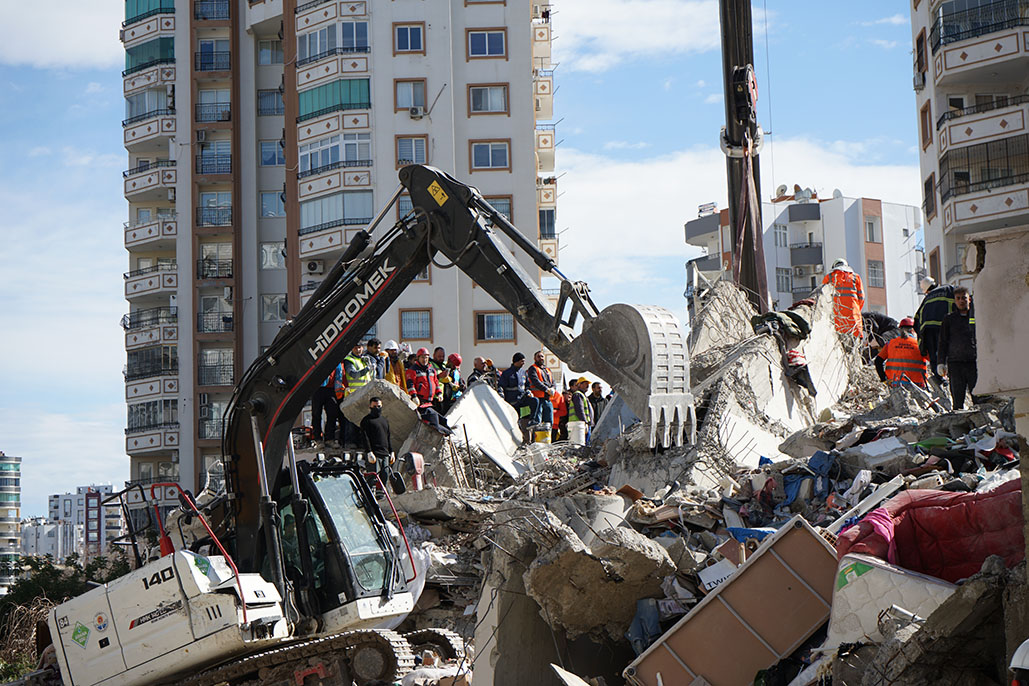The confirmed death toll from the two huge earthquakes which struck southern Turkey and northern Syria on Monday has now passed 9,000. Aid officials fear the final toll could reach 20,000. Rescuers continue to work around the clock to save people, but many locals are angry over the inadequate response from the Turkish authorities.
Antakya is the capital of the Hatay province, wedged between Syria in the east and the Mediterranean in the west. The earthquake completely devastated the city, flattening whole neighbourhoods. Around half of the upper-end apartment buildings along the city’s main Atatürk Boulevard have collapsed. Forty-eight hours after the first quake, residents are still cut off from electricity and gas. Those who survived stand in circles around fires outside in the streets in fear of another quake. Smaller aftershocks can still be felt.
Thousands of rescuers are working tirelessly around the clock, cutting through concrete panels and rebars
‘We could hear an old lady’s cries from a building,’ said Ali, a volunteer from the Mersin province. ‘I ran and told the people from the Emergency Management Presidency (AFAD). They came to have a look but said it’s too dangerous to work there. And just like that, they left her there. What is danger when it’s about human life?’
Many other locals also expressed frustration with the speed and scale of the rescue efforts and some of the emergency agencies. Meanwhile, thousands of rescuers are working tirelessly around the clock, cutting through concrete panels and rebars, climbing under half-collapsed buildings with the hope of finding survivors.
‘In the morning there were hardly any rescuers around’ said Esra, standing by a group of collapsed buildings. ‘We could hear cries for help from about fifteen different places in this street. I went around begging the emergency services with diggers to come and help. They all said they cannot do anything, others are also waiting.’
The state hospital in the city has been destroyed. Those who cannot be transported to other provinces are taken to a hospital 10 miles north of the city – one of the few buildings that still has electricity. The critically injured are waiting next to hundreds of the dead covered in blankets with paper notes on top, stating their identity.
‘Most of us working here are volunteers’ said Kemal Kaya, who himself flew in from western Turkey to help. ‘We treat them the best we can, then send those whose condition is stable to other hospitals.’
Adana is one of Turkey’s largest cities where several high-rise apartment buildings collapsed. Locals gathered around the wreckage, helplessly waiting as authorities and volunteers clear the debris.
‘My brother, his wife, and their son is under there somewhere,’ said Dilek Gülbüz, an elderly woman who came from the capital Ankara after the earthquake. ‘I have no other family left, only them. They’ve been there for two days! We pay taxes and this is the emergency service we get? They are all guilty (the government)!’
The infrastructure in the whole region was severely damaged, further hindering rescue missions from reaching affected areas. Many roads were destroyed, power grids collapsed, and phone signals are not working in many areas. The snow continues to fall – and for the few remaining survivors trapped under the rubble, time is running out.






Comments